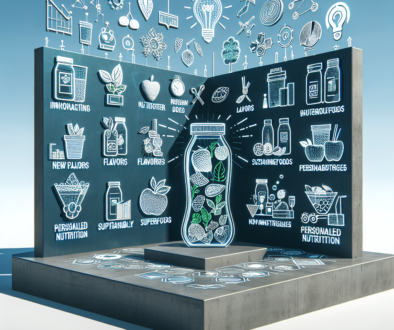Effects Of Different Core Temperatures On Beef Collagen Properties And Tenderness
Keywords
Heat Beef Collagen Tenderness Crosslinking
Abstract
In this study, beef was heated in a water bath to reach different core temperatures to explore the effect of collagen properties on tenderness and texture properties, and to provide a theoretical basis for the tenderness properties of cooked beef. Bovine semitendinosus muscle was heated in a 100¡ãC water bath to core temperatures of 60¡ãC, 70¡ãC, 80¡ãC, 90¡ãC, and 100¡ãC, and its shear force, cooking loss, moisture content, texture characteristics, and collagen content were measured. and thermal solubility, covalent cross-linking, scanning electron microscopy and other indicators to explore the changing mechanism of tenderness. Finally, the key factors affecting tenderness were obtained through correlation analysis. The results show that as the core temperature increases, the shear force of bovine semitendinosus, collagen content and thermal solubility, hydroxylysine pyridinoline, hardness, elasticity, adhesiveness and chewiness increase; lysine Pyridinoline, cohesion, adhesiveness and resilience decrease. The collagen content and the dissolution and denaturation of soluble collagen greatly affect the tenderness of beef. The elasticity and chewiness of meat are related to the collagen content and covalent cross-linking. The decrease in beef hardness is related to the integrity of the perimysium and endomysium. Related to sexual destruction. In this study, the effects of collagen characters on the tenderness and texture of the beef was explored by heating beef to different center temperatures. The bovine semitendinosus muscle was heated untill the central temperature reached 60¡æ, 70¡æ, 80¡æ, 90¡æ, and 100¡æ by using a 100¡æ water bath. The results showed that with the increase of the center temperature, the shearing strength, collagen content, thermal dissolution, hydroxyl lysine pyridine, hardness, elasticity, adhesion and chewiness of bovine semitendinosus muscles were increased , while lysine pyridine, cohesion, adhesion and resilience were decreased. The collagen content and soluble degeneration of soluble collagen largely affected the tenderness of beef. The elasticity and chewiness of meat were associated with the content of collagen and the covalent crosslinking. The decrease in the hardness of beef was related to the destruction of the perimysium and endomysium.
For further information of this article and research, feel free to contact our team for asssitance.
Original research was done by Liu Jingjing
About ETChem
ETChem, a reputable Chinese Collagen factory manufacturer and supplier, is renowned for producing, stocking, exporting, and delivering the highest quality collagens. They include marine collagen, fish collagen, bovine collagen, chicken collagen, type I collagen, type II collagen and type III collagen etc. Their offerings, characterized by a neutral taste, and instant solubility attributes, cater to a diverse range of industries. They serve nutraceutical, pharmaceutical, cosmeceutical, veterinary, as well as food and beverage finished product distributors, traders, and manufacturers across Europe, USA, Canada, Australia, Thailand, Japan, Korea, Brazil, and Chile, among others.
ETChem specialization includes exporting and delivering tailor-made collagen powder and finished collagen nutritional supplements. Their extensive product range covers sectors like Food and Beverage, Sports Nutrition, Weight Management, Dietary Supplements, Health and Wellness Products, ensuring comprehensive solutions to meet all your protein needs.
As a trusted company by leading global food and beverage brands and Fortune 500 companies, ETChem reinforces China’s reputation in the global arena. For more information or to sample their products, please contact them and email karen(at)et-chem.com today.



